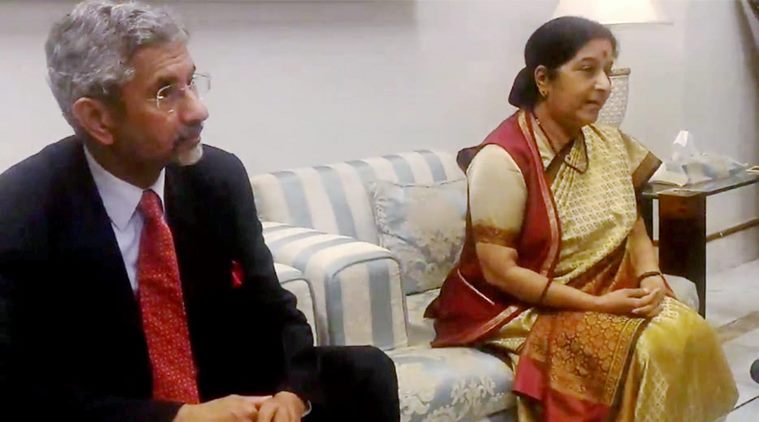-
Tips for becoming a good boxer - November 6, 2020
-
7 expert tips for making your hens night a memorable one - November 6, 2020
-
5 reasons to host your Christmas party on a cruise boat - November 6, 2020
-
What to do when you’re charged with a crime - November 6, 2020
-
Should you get one or multiple dogs? Here’s all you need to know - November 3, 2020
-
A Guide: How to Build Your Very Own Magic Mirror - February 14, 2019
-
Our Top Inspirational Baseball Stars - November 24, 2018
-
Five Tech Tools That Will Help You Turn Your Blog into a Business - November 24, 2018
-
How to Indulge on Vacation without Expanding Your Waist - November 9, 2018
-
5 Strategies for Businesses to Appeal to Today’s Increasingly Mobile-Crazed Customers - November 9, 2018
7 years after Mumbai attacks, India, Pakistan resume dialogue
On Wednesday, Pakistan and India agreed to resume composite dialogue under the new title of “Comprehensive Bilateral Dialogue”.
Advertisement
The joint statement came after External Affairs Minister Sushma Swaraj met Sharif and later his Advisor on Foreign Affairs Sartaj Aziz here on the concluding day of her two-day visit for attending a multilateral conference on Afghanistan. After the Ufa meeting, both prime ministers directed their foreign secretaries to initiate the process of renewing talks, including meetings between the national security advisors of the two countries.
External Affairs Minister Sushma Swaraj who arrived here late last night after a visit to Pakistan, will make a statement in Parliament on Thursday on the proposed “comprehensive dialogue” between the two nations.
The rapprochement is, importantly, based on a commitment by Pakistan that it would expedite the trial of Mumbai accused – a promise that Prime Minister Nawaz Sharif also made during his visit to the White House in November, where he had pledged to take effective action against Lashkar-e-Taiba and its affiliates.
The 450-year-old Grand Trunk Road linking Kolkata with Kabul exemplifies the connectivity – and security – that once bound India, Pakistan and Afghanistan in a web of economic prosperity, and underlines the imperative for land access and united action against terrorism for regional stability and development.
This has been the case ever since India and Pakistan began the structured composite dialogue process. The challenge before India and Pakistan now is to be able to sustain a dialogue – in the open – on the contentious issues that have divided them, be it the role of the Hurriyat, the status of Jammu and Kashmir, and other political hot potatoes like Sir Creek and Siachen.
He said important bilateral and trilateral meetings were held on sidelines of the conference and its theme was security situation in Afghanistan, improvement in relations of the two countries and reconciliation process in Afghanistan.
Over the next few months, the negotiations were choreographed from the Indian side by IK Gujral, first as foreign minister in the HD Deve Gowda ministry and later as prime minister and conducted in committee rooms by Salman Haider as India’s Foreign Secretary. The presence of including of China, India, Afghanistan and Pakistan meant that the countries directly engaged in Afghanistan were all able to put forward their views.
Their meeting was seen as a strong signal that they are attempting to revive the Taliban talks, brokered by the Pakistani army, which has long wielded influence over the insurgent group.
There were ups and downs in the relationship between the two sides. Ms Swaraj was the first Indian foreign minister to visit Pakistan since 2012.
Advertisement
Pakistan Cricket Board (PCB) chairman Shahryar Khan on Friday said that the board will have to ask for the government’s permission for their participation in ICC World T20 to be hosted by India next year. At the “Heart of Asia Summit”, she said, “It is time we display maturity and self-confidence to do business with each other and strengthen regional trade and cooperation”. And let us face it. The price the people of the sub-continent have paid for three wars and continuing tensions on the border has been enormous, though no statistician has actually counted it in rupees and paise.





























